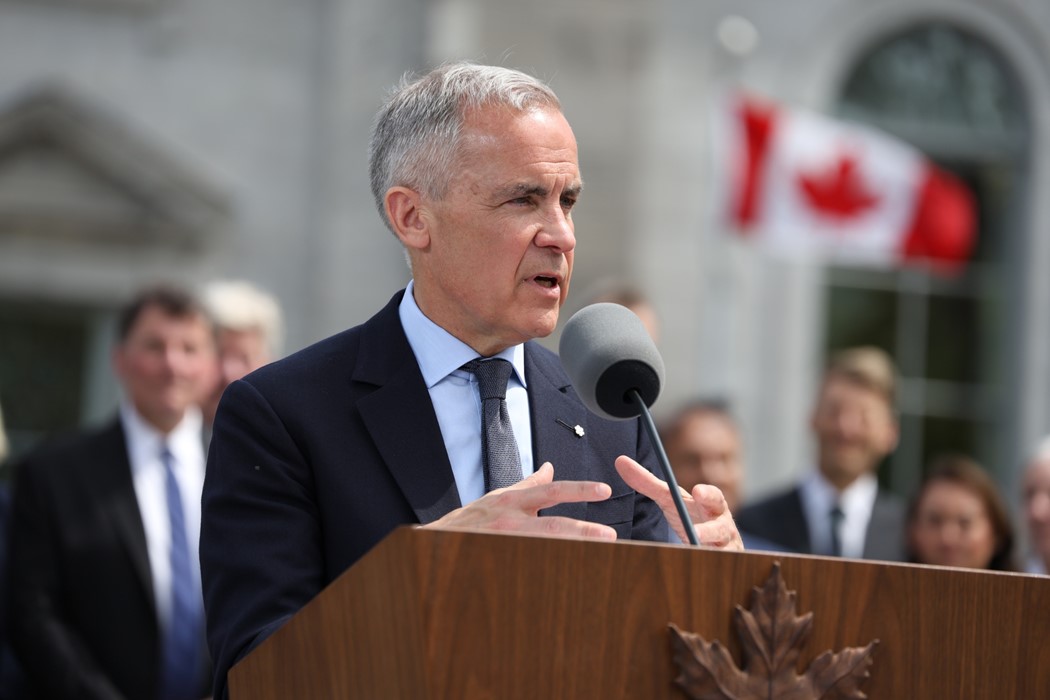Carney to Fast-Track ‘Nation-Building’ Projects Through Bill
Jun 06, 2025 by Bloomberg(Bloomberg) --
Prime Minister Mark Carney announced legislation on Friday to fast-track “nation-building” projects in Canada and remove internal barriers to trade in an effort to shore up the country’s economy from the US tariff barrage.
The bill targets major projects that may include ports, railways, highways, critical-mineral mines, oil pipelines and electricity transmission systems. The government’s overall goal is to speed up approvals to two years.
The legislation would allow the government to identify projects in the national interest in consultation with provinces, territories and Indigenous partners. Federal reviews would then ask not whether to build the proposals, but how best to advance them.
“Canada’s a country that used to build big things,” Carney said at a news conference, adding it’s become too difficult to build in recent decades. “When federal agencies have examined a new project, their immediate question has been: Why? With this bill, we will instead ask ourselves: How?”

Carney won an April election on an ambitious pledge to win the trade war with the US and make Canada’s economy the strongest in the Group of Seven. A major step will be to accelerate Canada’s sluggish regulatory processes, which have challenged its ability to bring resources to tidewater for shipping to overseas markets.
A key goal of the legislation is to signal to investors that Canada is committed to successfully executing these projects, a government official told reporters in a background briefing on condition of anonymity.
In considering whether a project is in the national interest, the government will examine five factors: whether it strengthens Canada’s autonomy, resilience, and security; whether it provides economic or other benefits to Canada; whether it has a high likelihood of successful completion; whether it advances the interests of Indigenous peoples; and whether it contributes to clean growth and Canada’s climate-change objectives.
The government stressed that Indigenous groups, provinces and territories would be consulted on whether a project is in the national interest, and these groups can also bring forward proposals. The Assembly of First Nations has raised concerns about the legislation infringing upon Indigenous rights and title, and was set to hold an emergency meeting about the bill.
Carney met with provincial and territorial premiers earlier this week to discuss projects they’d like to see fast-tracked. After the meeting, he said there’s potential for another oil pipeline to be built in Canada if it’s tied to billions in green investments to reduce the industry’s environmental footprint.
The bill to fast-track some major projects will suffice in the short term, but Canada still needs to fix its overall regulatory system, Heather Exner-Pirot, energy director at the Macdonald-Laurier Institute, said in an interview.
“Legislation where the government picks and chooses a handful of projects — that is not going to unleash the Canadian resource sector, where you have dozens of natural resource projects already in the queue, already going through regulation, that are private sector-led, that aren’t asking for subsidies,” she said.
The bill also aims to remove barriers to trade between provinces, which have dragged down Canada’s economic growth. The legislation would mean that when both a federal and provincial rule apply to a good or service involved in interprovincial trade, the federal rule will apply. But in practice, Carney’s government will recognize items that comply with provincial rules as following the federal ones, an official said.
The legislation also addresses labor mobility by recognizing provincial work authorizations, meaning that a worker can begin a federal job with only an Ontario license in hand, for example. The government will also eliminate all federal exemptions to the Canadian Free Trade Agreement by July 1.
(Adds comment from Carney, the Assembly of First Nations and an expert starting in the fourth paragraph.)
©2025 Bloomberg L.P.
By


















